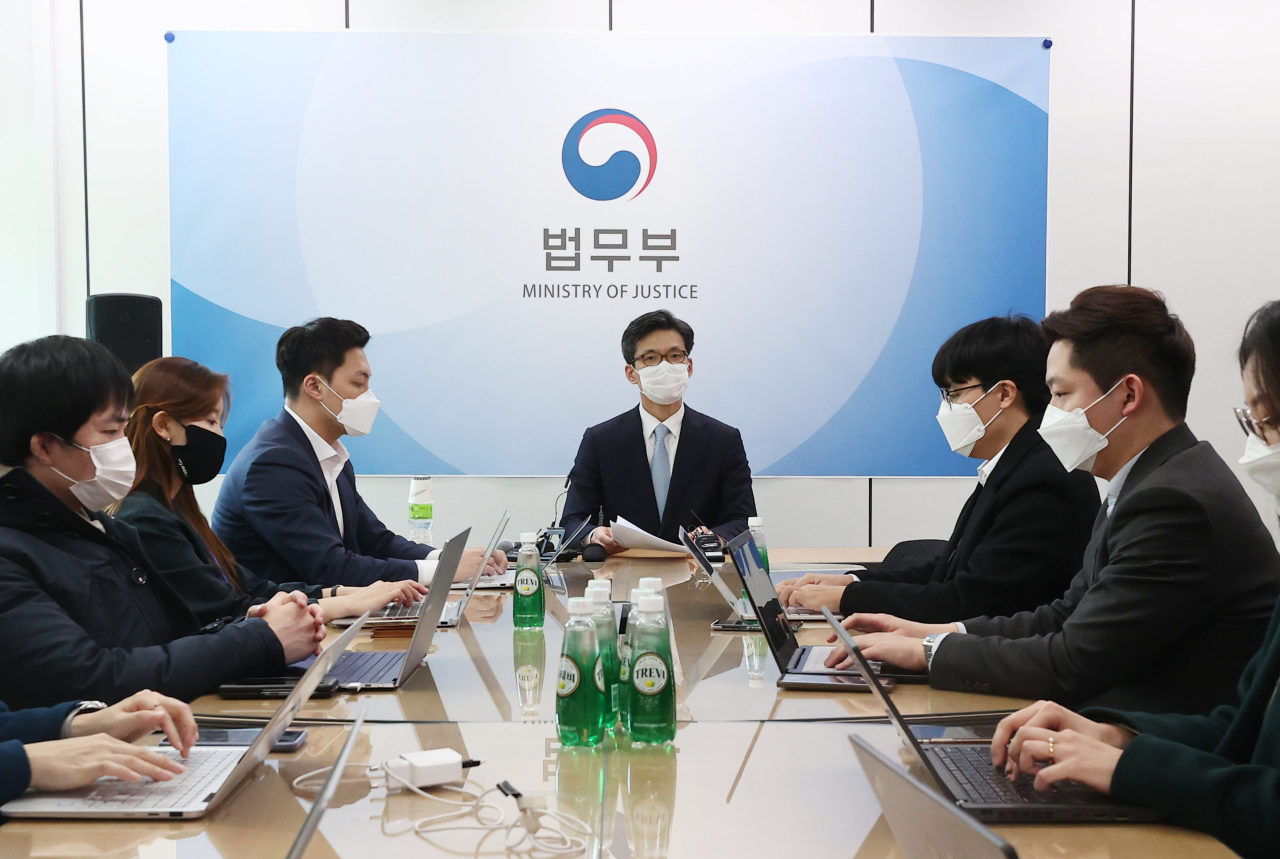 |
Park Cheol-woo, spokesperson for the Ministry of Justice, (center) speaks during a press briefing Friday. The ministry filed complaints then to take back 85,094 square meters of land from descendants of four Japanese collaborators. (Yonhap) |
The South Korean government has started a legal challenge to confiscate 11 land properties from descendants of four Japanese collaborators, the Ministry of Justice said Monday.
The ministry said it filed complaints with the Seoul Central District Court and the Seoul Western District Court on Friday to take back 85,094 square meters of land valued at 2.68 billion won ($2.4 million) from descendants of those on the list of pro-Japan collaborators announced in 2007.
The four collaborators, named Lee Hae-seung, Lee Gi-yong, Lee Gyu-won and Hong Seung-mok, were included on the list for being involved in Japan’s colonial rule of the Korean peninsula from 1910 to 1945.
They were recognized and given roles by the Japanese imperial regime for their activities during the colonial rule.
The Korean government is allowed to take away assets from descendants of Japanese collaborators according to the Special Act on Asset Confiscation for Pro-Japanese and Antinational Collaborators to the State passed in 2011.
The special act allows the Korean government to collect assets acquired by pro-Japan activities between February 1904 and the 1945 liberation. Although colonial rule started in 1910, the special act declares that even assets from those who performed pro-Japan duties beginning 1904 when the Russo-Japanese War started can be acquired by the state.
The assets are exempt from being collected when they are purchased by third parties before undergoing the confiscation process. The Constitutional Court ruled in 2011 that the law is constitutional, saying it is necessary to clear away remnants of the colonial period.
The Ministry of Justice has been the lead agency investigating the collectable assets of Japanese collaborators since 2010 after taking over the duty from the Investigative Commission on Pro-Japanese Collaborators’ Property, a presidential body that ran for four years beginning in 2006.
The properties in the latest legal proceeding were barred from transaction last year following inspections of 66 real estate assets from descendants of the four pro-Japan collaborators.
The ministry said it has so far won 17 out of 19 suits to collect assets from descendants of pro-Japan collaborators, confiscating 26 billion won-worth of real estate properties.
“We will not stop confiscating real estate properties under the scope through comprehensive legal challenges and complete our task of erasing the trace of pro-Japanese faction,” the ministry said in a statement.
“We will take back every last piece of land to uphold the constitutional significance of the March 1 movement and historical justice.”
By Ko Jun-tae (
ko.juntae@heraldcorp.com)








![[Today’s K-pop] Blackpink’s Jennie, Lisa invited to Coachella as solo acts](http://res.heraldm.com/phpwas/restmb_idxmake.php?idx=644&simg=/content/image/2024/11/21/20241121050099_0.jpg)